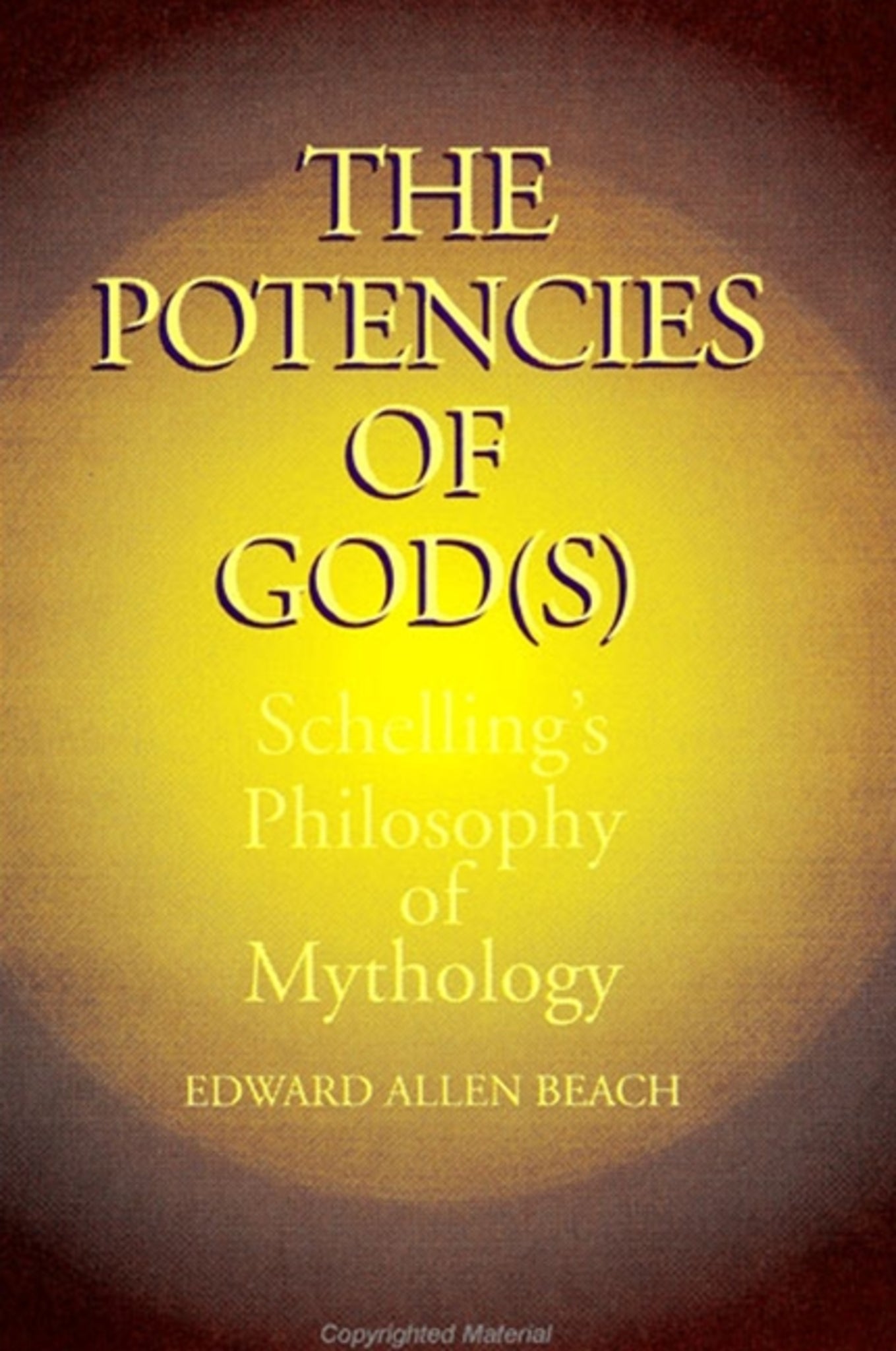We're sorry. An error has occurred
Please cancel or retry.
The Potencies of God(s)

Some error occured while loading the Quick View. Please close the Quick View and try reloading the page.
Couldn't load pickup availability
- Format:
-
07 October 1994

Explores the metaphysical, epistemological, and hermeneutical theories of Schelling's final system concerning the nature and meaning of religious mythology.
This book explores the metaphysical, epistemological, and hermeneutical theories of Schelling's final system concerning the nature and meaning of religious mythology. This perspective is not surprising since Schelling regarded religion (not science or philosophy) as embodying the most complete manifestation of truth.
Beach examines Schelling's novel attempt to account for the changing historical forms of religion in terms of a complex theory of dynamic spiritual powers, or "potencies." He shows that these are not mere representations, ideas, or projected feelings created by ancient myth-makers for the benefit of a credulous populace. Instead, Beach demonstrates that these potencies should be seen as animate powers inhabiting the unconscious strata of a people's collective mind.


"This is an interdisciplinary study, connecting philosophy and religion. Beach is at home in both domains of analysis and argument. He situates Schelling's endeavor in a clearly articulated matrix of systematic positions. Though he is rightly critical of Schelling's accomplishments,, both in terms of religion and philosophy, he manifests a good deal of sympathy for that thinker's project." — Michael G. Vater, Marquette University
"This book makes a significant contribution to the literature on Schelling. The insights into this period of his thought are fascinating. The emphasis on mythology is especially timely, in light of the re-awakened interest in mythology as appropriate subject matter for philosophical research. The author himself is quite clearly knowledgeable, learned, authoritative, and appropriately critical regarding the excesses and inadequacies of Schelling's thought, while remaining appreciative of the philosopher's independence and creative originality. The book will appeal to a wide audience of philosophers and historians of religion; it is clearly and competently written." — George R. Lucas, Jr., Clemson University
Preface
Introduction: Schelling's Religious Problematic
A Fresh Search for Hermeneutical Principles
Establishing the Integrity of Religious Phenomena
Searching for an Adequate Definition of Myth
Part I. Historical Background, Issues And Contexts
1. The Origins of Pagan Religions
2. Allegory, Symbol, or Reality?
Naturalistic and Euhemeristic Theories of Religious Allegory
Schelling's Earlier Treatments of Mythology
A Final Assault on Allegorical Interpretations
3. The Unconscious and the Irrational
Early Speculations about the Unconscious
From the Unconscious to the Irrational
4. Toward a New Ontology of Eternity, Temporality, and Freedom
Dialectic: A Stable Law of Change
A "Groundless Activity" in Eternity
Some Preliminary Questions and Criticisms
5. Three Formative Influences on Schelling: Böhme, Baader, and Hegel
Böme: The Influx of Mysticism
Baader: Through Dialectic and Mysticism Back to Christian Orthodoxy
Hegel: A Conceptual Mediation of Time and Eternity
Part II. The Theory Of Potencies
6. Schelling's New Philosophical Point of Departure
A Philosophical Dilemma
The Search for a Nonrationalistic Alternative to Relativism
The Search for a Nonrationalist Alternative to Fideism
Initial Moves toward Resolving the Dilemma
The Distinction between the Was and the Daß
7. The Ontology
The Pure Potencies Prior to their Actualization
The Inverted Potencies in their State of Tension
The Relation of the Potencies to the Functions of the Daß
Some Comments and Criticisms concerning the Potenzenlehre
8. Positive Philosophy and the Experiential Proof of God
Empirical Confirmation versus Exemplification
A Logical Fallacy?
The Significance of Existential Instantiation
9. Representative Issues and Controversies in Current Schelling Scholarship: Habermas and Schulz
Habermas: A Historicist Interpretation
Schulz: A Quasi-Rationalistic Interpretation
Concluding Comments
Part III. Exemplification, Primarily In Terms Of Greek Mythology
10. From Uranus to Cronus
Preliminary Considerations Regarding Language, Mythological Consciousness, and the Names of Ancient Deities
The Religion of "Relative Monotheism"
Zabism: The Worship of "Uranus"
The Rise of Cronus
11. From Dionysus to Iakchos
The Significance of Goddesses in Mythology
The Coming of Dionysus
Divine Madness and the Strange Paradox of the "Dionysian" Motif
Iakchos: The Archetype of Spiritual Balance
Some Empirical Evidence, Ancient and Modern
Secrets of the "Uncanny" Lurking beneath the Surfaces of Mythology
12. The Self-Overcoming of Mythology
The Origins of Ontological Ambivalence in a Displacement of the Potencies
The Progressive Discharging of Religious Projections
The Eleusinian Mysteries
Toward a "Sublimated Projection Theory" of Religions
Notes
Bibliography
Index



